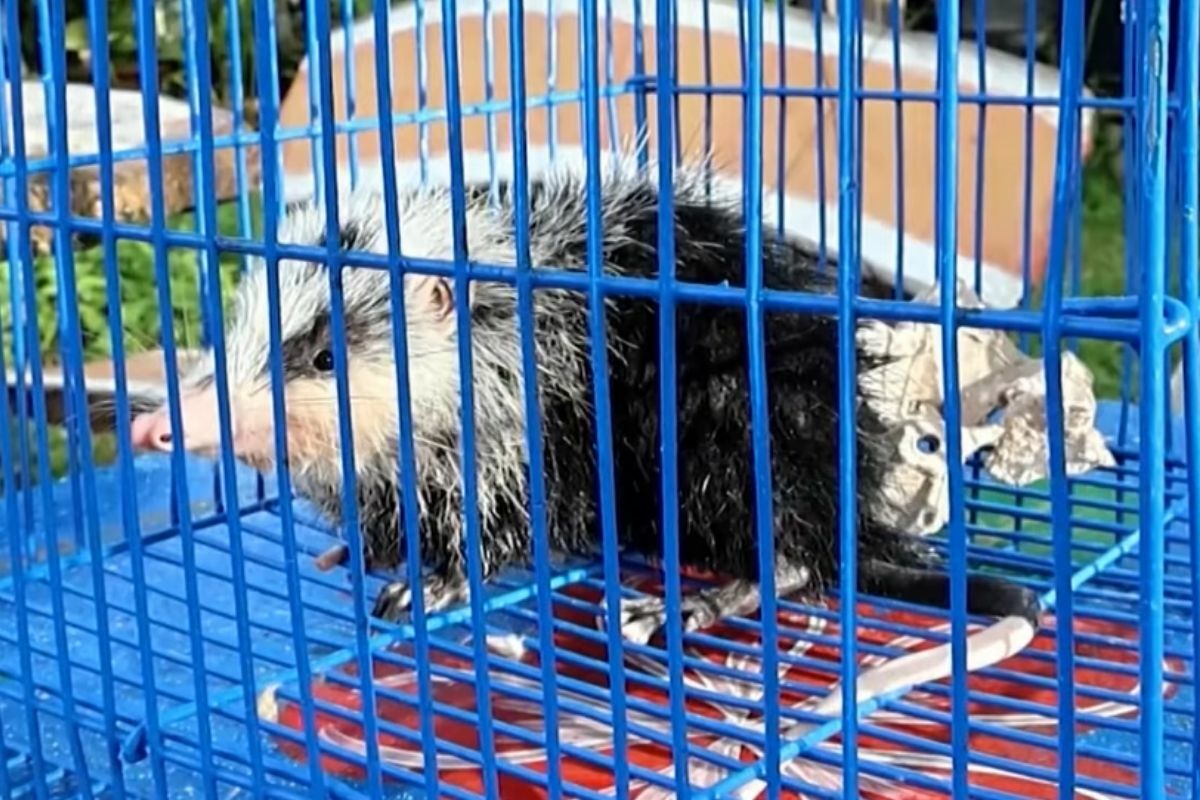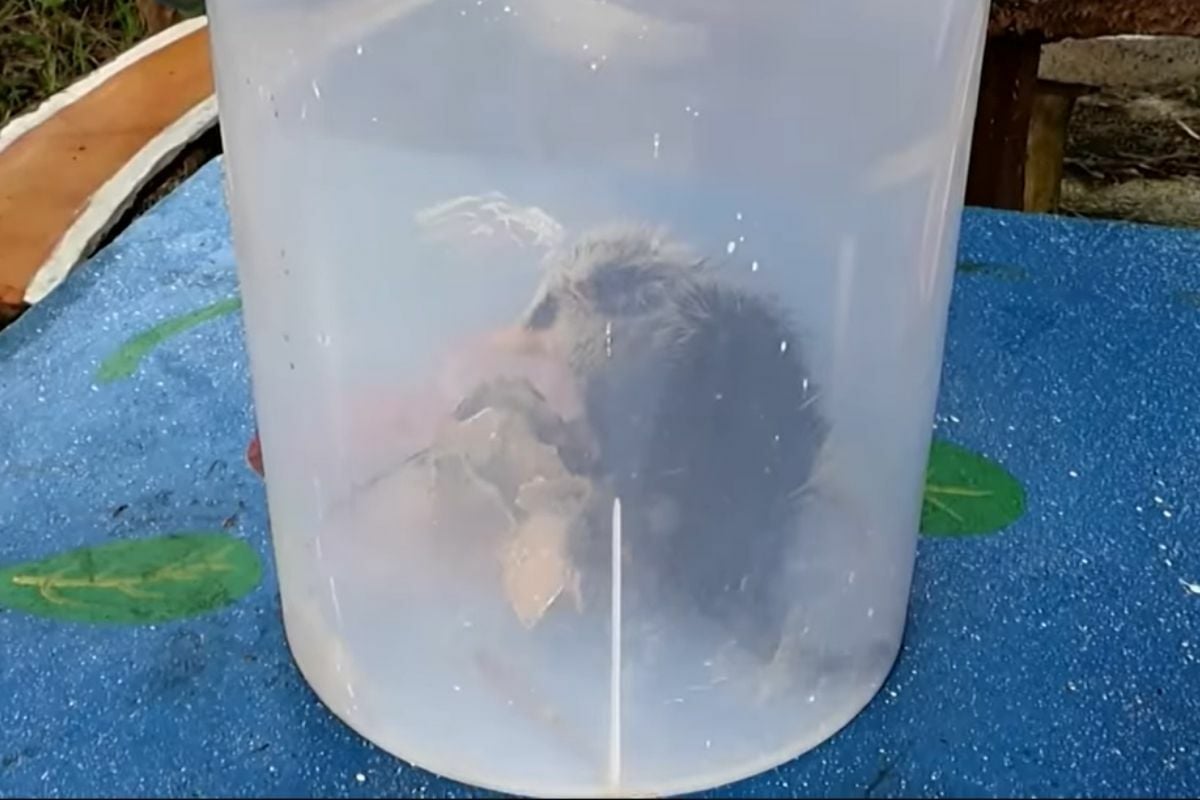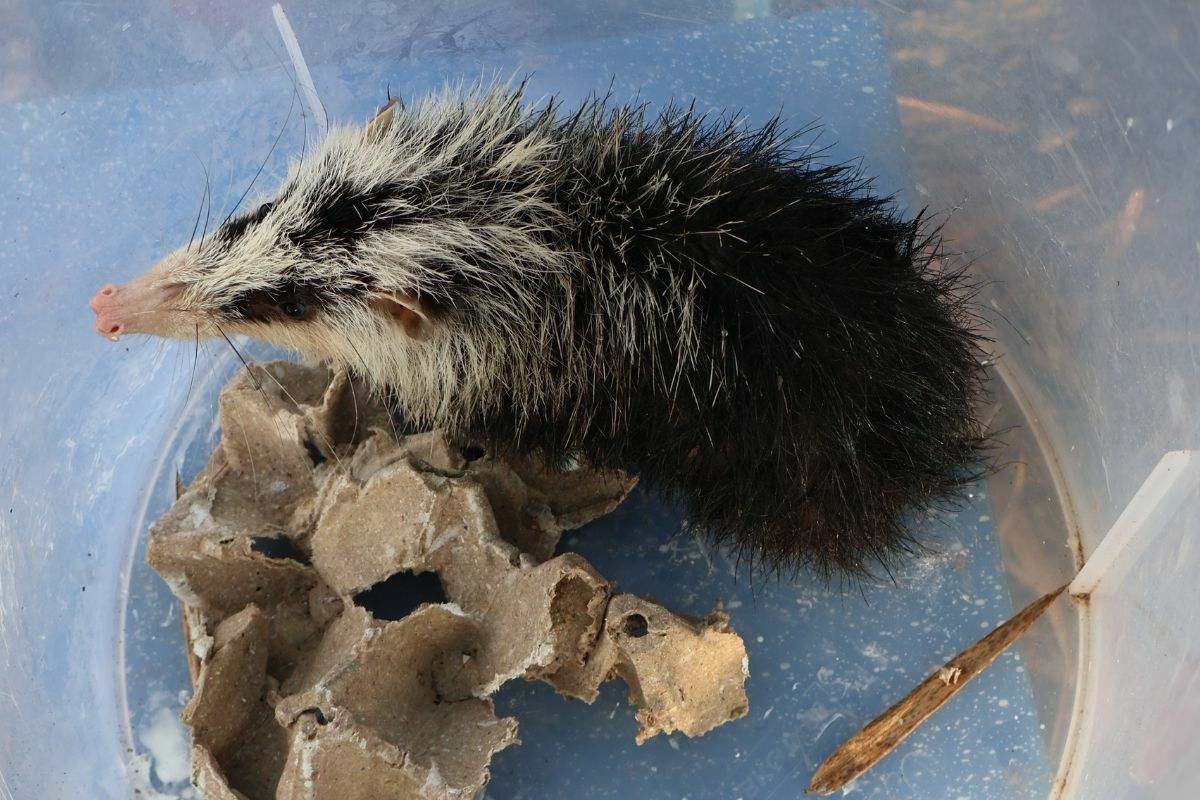Thai woman finds rare Moonrat in southern Thailand canal (video)

A local angler in the southern province of Yala discovered a rare and endangered species known as the moonrat while fishing in a canal. She plans to return it to its natural habitat.
The President of the Betong Animal Lover Club, Phatcharin Prathummek, contacted several news agencies to report her rare find. She later guided journalists to her house, where the animal, found floating in the canal, was being kept.
Channel 3 reported that the animal was housed in a round plastic bucket outside Phatcharin’s home. She disclosed that he was unfamiliar with the creature. She described its appearance as peculiar, with a body resembling a rat but a face similar to a pig.
Phatcharin came across the animal floating along the canal, so she used a fishing net to pull it out of the canal to save its life. She initially thought it was a bamboo rat but she was mistaken.
Adding to her astonishment was the animal’s strong, unpleasant odour and aggressive behaviour, which prompted him to confine it to the bucket. The animal reportedly weighs over 1 kilogramme.
Phatcharin researched the animal and identified it as a moonrat, a species listed as endangered. The moonrat, is called Noo Men or Sato in Thailand. The name Noo Men came from its strong odour, as the word “men” in Thai means “smelly.”

The moonrat is known for its potent ammonia-like odour, which it uses to communicate with other moonrats. It is a solitary animal, preferring to dwell in burrows, tree hollows, or crevices under tree roots.
The moonrat has long, shaggy fur in white and black, with a distinctive black stripe running across its eyes. Its upper lip and nose bridge are elongated and slender, while its tail, similar to that of a rat, is covered in small scales.

Moonrats primarily feed on worms, beetles, various insects, and earthworms but they also eat frogs, toads, shrimp, crabs, fish, and snails.
The moonrat is endangered due to the continuous destruction of its forest habitat. It is also protected under Thailand’s Wildlife Preservation and Protection Act.
Phatcharin and the angler emphasised that their intent in sharing the news was to highlight their extraordinary discovery. They assured the public that they had no intention of keeping the moonrat as a pet and would return it to its natural habitat as soon as possible.
Latest Thailand News
Follow The Thaiger on Google News:


























